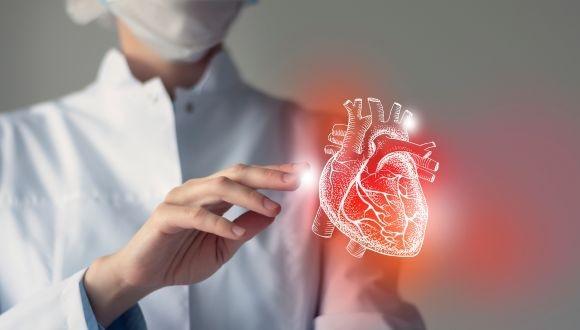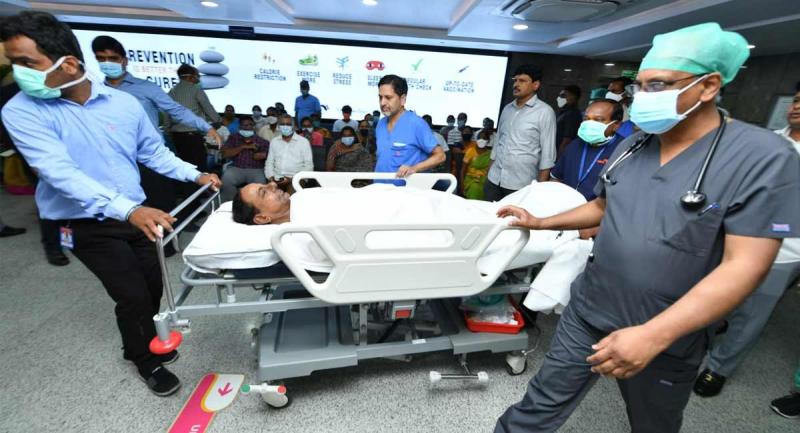
- devara
- 14 Feb 2025 09:36 AM
- #Heart disease and cancer #inflammation and cancer #stress and cancer
1. Chronic Inflammation
Heart disease is often associated with persistent inflammation within the body. Chronic inflammation damages cells and DNA, creating an environment conducive to abnormal cell growth. This prolonged inflammation can increase the risk of developing cancer, especially in organs that are more susceptible to inflammation-induced damage, such as the liver, lungs, and colon. The inflammatory response promotes mutations and a weakened immune system, making it easier for cancerous cells to grow and spread.
2. Oxidative Stress and DNA Damage
Heart disease often leads to increased oxidative stress, a condition where free radicals (unstable molecules) cause damage to cells, tissues, and DNA. Oxidative stress can result in DNA mutations, which can contribute to the development of cancerous cells. Since heart disease is linked to high levels of oxidative stress, the constant damage to healthy cells heightens the risk of abnormal cell growth and cancer formation. This damage can affect various tissues and organs, increasing the likelihood of cancer developing.
3. Poor Blood Circulation and Oxygen Supply
One of the common symptoms of heart disease is reduced blood flow, which deprives tissues and organs of necessary oxygen and nutrients. Poor blood circulation weakens the cells in the affected areas, making them more vulnerable to mutations. Without adequate oxygen, cells struggle to function normally, increasing the likelihood of their transformation into cancerous cells. The lack of proper blood flow can contribute to the growth of abnormal, uncontrolled cells, further raising cancer risk.
4. Weakened Immune System
A compromised cardiovascular system can negatively affect immune function. When heart disease leads to poor circulation and metabolic disturbances, the immune system’s ability to detect and eliminate cancerous cells is weakened. Normally, the immune system identifies and destroys cells that have undergone mutations before they can become cancerous. However, in individuals with heart disease, a weakened immune response allows mutated cells to escape detection and continue to grow unchecked, increasing the likelihood of cancer developing.
5. Shared Risk Factors with Cancer
Heart disease and cancer share many lifestyle-related risk factors. Obesity, smoking, poor diet, high blood sugar, and a sedentary lifestyle contribute to both conditions. People with heart disease are often already exposed to these risks, which makes them more vulnerable to developing cancer. The shared risk factors create a vicious cycle, where the same unhealthy habits contribute to both the progression of heart disease and an increased risk of cancer. Managing these risk factors is crucial for reducing overall disease risk.
6. High Insulin and Blood Sugar Levels
Metabolic disturbances that occur with heart disease, such as insulin resistance and high blood sugar, can create an environment that promotes cancer growth. Insulin and glucose are growth factors that encourage cell proliferation, which can increase the likelihood of cancerous cells multiplying. Elevated blood sugar levels can feed cancer cells, allowing them to grow and spread more rapidly. These metabolic issues make heart disease patients more susceptible to developing various cancers, especially those linked to metabolic factors like colon and breast cancer.
7. Effects of Heart Disease Medications
Certain medications used to treat heart disease, such as statins and beta-blockers, may have long-term side effects that can contribute to cancer risk. While these medications are effective at managing heart conditions, some studies suggest they might influence cancer-related pathways in the body. For example, statins, which are commonly prescribed to lower cholesterol, could potentially affect cancer cell growth and survival. However, more research is needed to fully understand the relationship between heart disease medications and cancer risk.
8. Hormonal Imbalances
Heart disease can disrupt the body’s hormone regulation, particularly the levels of insulin, estrogen, and other hormones that affect cell growth. Hormonal imbalances have been linked to certain cancers, such as breast, prostate, and endometrial cancer. For example, high levels of insulin, often seen in individuals with heart disease, can promote cancer cell proliferation. Similarly, changes in estrogen levels due to heart disease may increase the risk of hormone-related cancers. These hormonal disruptions contribute to the higher cancer susceptibility observed in individuals with cardiovascular disease.
9. Prolonged Stress and Cortisol Levels
Chronic stress is common in people with heart disease, which leads to elevated cortisol levels in the body. Prolonged high cortisol levels can have a negative impact on immune function, making it harder for the body to detect and fight cancerous cells. Elevated cortisol also increases inflammation and can cause changes in the body's metabolic processes, both of which contribute to an environment that encourages tumor growth. Additionally, prolonged stress can impair the body’s ability to heal and maintain normal cellular function, further increasing the risk of developing cancer.
By understanding these links, individuals with heart disease can take steps to prevent or reduce their overall cancer risk. Maintaining a healthy lifestyle, including managing stress, adopting a balanced diet, exercising regularly, and undergoing routine health screenings, can help mitigate both heart disease and cancer risks.












































